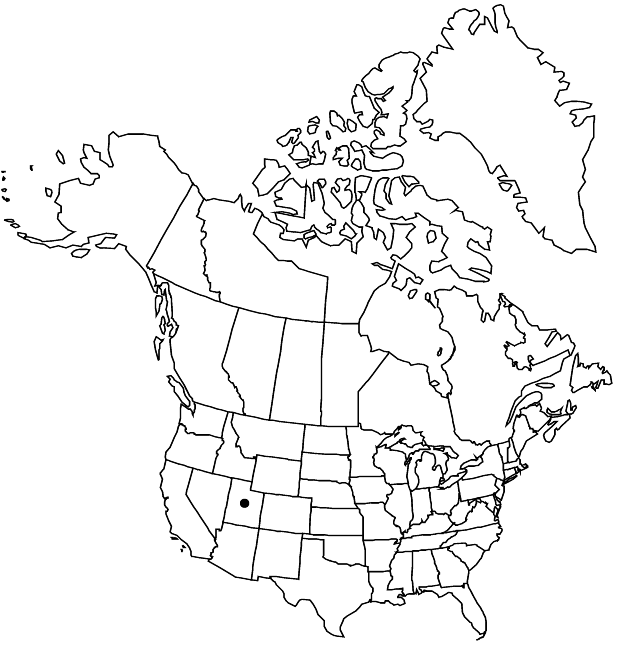Difference between revisions of "Primula cusickiana var. domensis"
Brittonia 53: 155. 2001 ,.
FNA>Volume Importer |
FNA>Volume Importer |
||
| Line 7: | Line 7: | ||
}} | }} | ||
|common_names=House Range primrose | |common_names=House Range primrose | ||
| − | |basionyms={{Treatment/ID/ | + | |basionyms={{Treatment/ID/Basionym |
|name=Primula domensis | |name=Primula domensis | ||
|authority=Kass & S. L. Welsh | |authority=Kass & S. L. Welsh | ||
| + | |publication_title=Great Basin Naturalist | ||
| + | |publication_place=45: 548, fig. 1. 1985 | ||
}} | }} | ||
|synonyms={{Treatment/ID/Synonym | |synonyms={{Treatment/ID/Synonym | ||
| Line 30: | Line 32: | ||
|distribution=Utah. | |distribution=Utah. | ||
|discussion=<p>Of conservation concern.</p><!-- | |discussion=<p>Of conservation concern.</p><!-- | ||
| − | --><p>Variety domensis is intermediate in morphology and geographic distribution between <i></i>var.<i> maguirei</i> and <i></i>var.<i> nevadensis</i>. It differs from the former in the longer corolla tube and less broadly spatulate leaf blades and from the latter in its taller scape and slightly longer corolla tube. It has been found in the House Range, about 80 kilometers east of the Snake Range, where <i>Primula</i> nevadensis occurs. Recent studies (S. Kelso et al. unpubl.) do not reveal significant genetic differentiation between <i></i>var.<i> nevadensis</i> and <i></i>var.<i> domensis</i>; given their similar morphology and ecology, it may be appropriate to consider them as a single taxon.</p> | + | --><p>Variety domensis is intermediate in morphology and geographic distribution between <i></i></i>var.<i><i> maguirei</i> and <i></i></i>var.<i><i> nevadensis</i>. It differs from the former in the longer corolla tube and less broadly spatulate leaf blades and from the latter in its taller scape and slightly longer corolla tube. It has been found in the House Range, about 80 kilometers east of the Snake Range, where <i>Primula</i> nevadensis occurs. Recent studies (S. Kelso et al. unpubl.) do not reveal significant genetic differentiation between <i></i></i>var.<i><i> nevadensis</i> and <i></i></i>var.<i><i> domensis</i>; given their similar morphology and ecology, it may be appropriate to consider them as a single taxon.</p> |
|tables= | |tables= | ||
|references= | |references= | ||
| Line 54: | Line 56: | ||
|publication year= | |publication year= | ||
|special status= | |special status= | ||
| − | |source xml=https://jpend@bitbucket.org/aafc-mbb/fna-data-curation.git/src/ | + | |source xml=https://jpend@bitbucket.org/aafc-mbb/fna-data-curation.git/src/f6b125a955440c0872999024f038d74684f65921/coarse_grained_fna_xml/V8/V8_600.xml |
|genus=Primula | |genus=Primula | ||
|species=Primula cusickiana | |species=Primula cusickiana | ||
Revision as of 20:29, 24 September 2019
Plants glandular-pubescent, at least in inflorescences, white-farinose on involucral bracts and calyces. Leaves shorter than scape; blade broadly lanceolate to spatulate, margins minutely dentate. Corolla tubes 8–14 mm, length 1.5+ times calyx.
Phenology: Flowering summer.
Habitat: Limestone cliffs
Elevation: 2400-2800 m
Discussion
Of conservation concern.
Variety domensis is intermediate in morphology and geographic distribution between var. maguirei and var. nevadensis. It differs from the former in the longer corolla tube and less broadly spatulate leaf blades and from the latter in its taller scape and slightly longer corolla tube. It has been found in the House Range, about 80 kilometers east of the Snake Range, where Primula nevadensis occurs. Recent studies (S. Kelso et al. unpubl.) do not reveal significant genetic differentiation between var. nevadensis and var. domensis; given their similar morphology and ecology, it may be appropriate to consider them as a single taxon.
Selected References
None.
